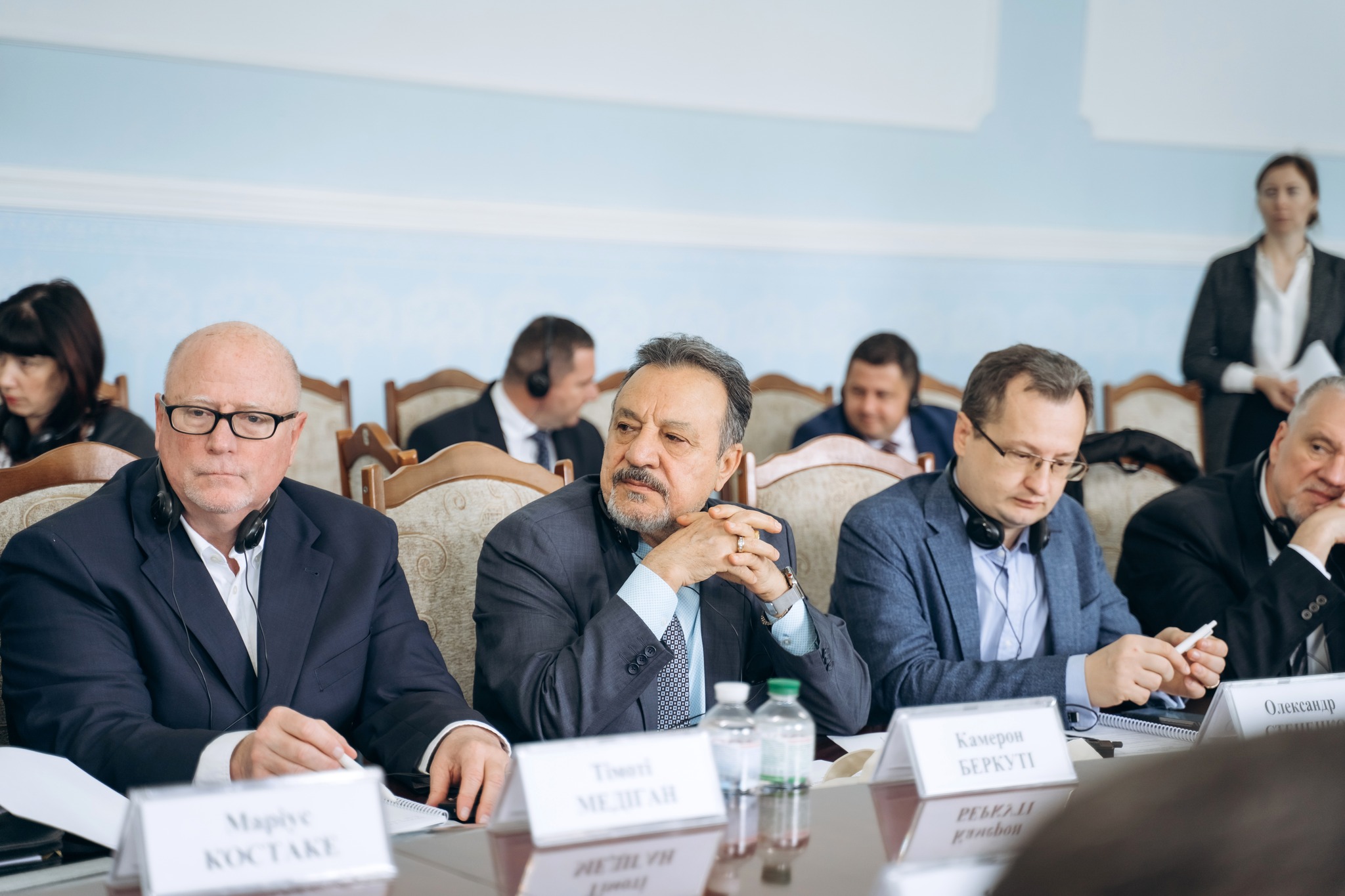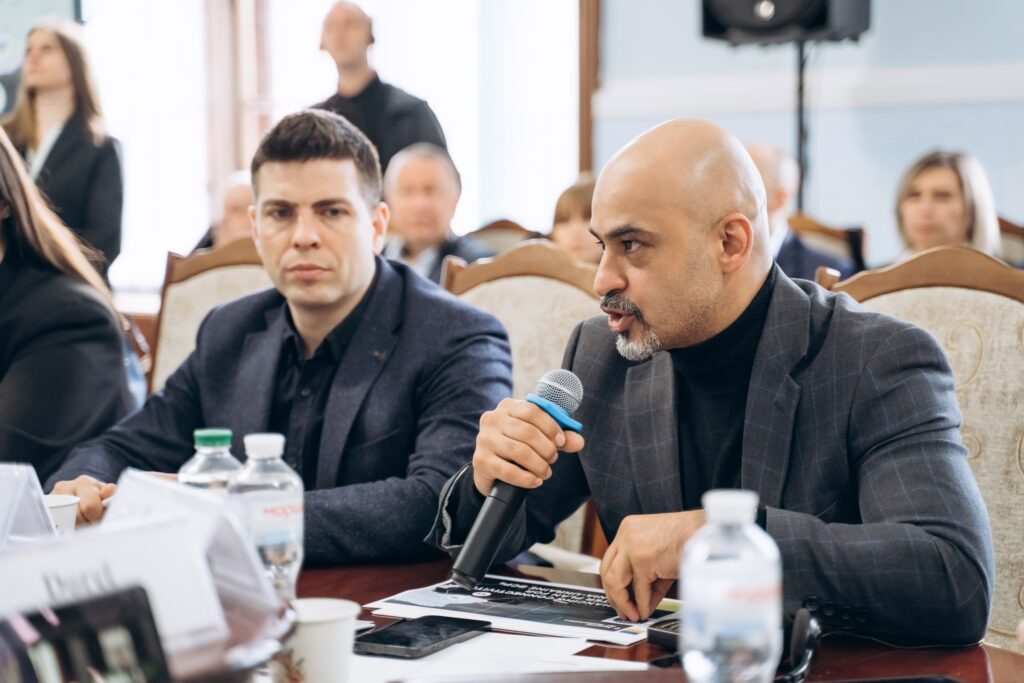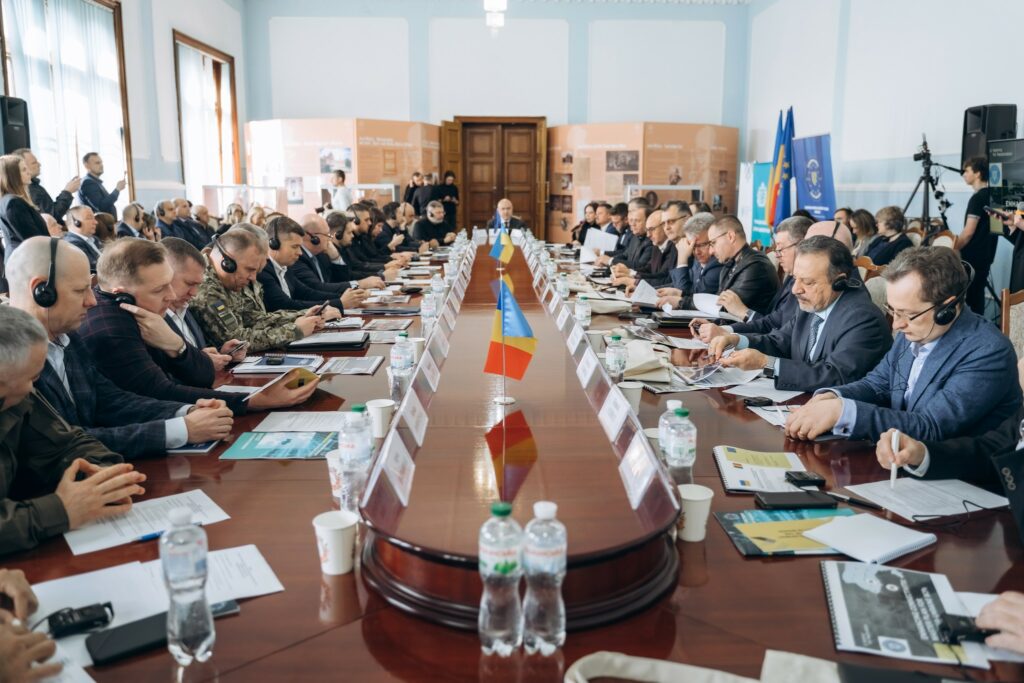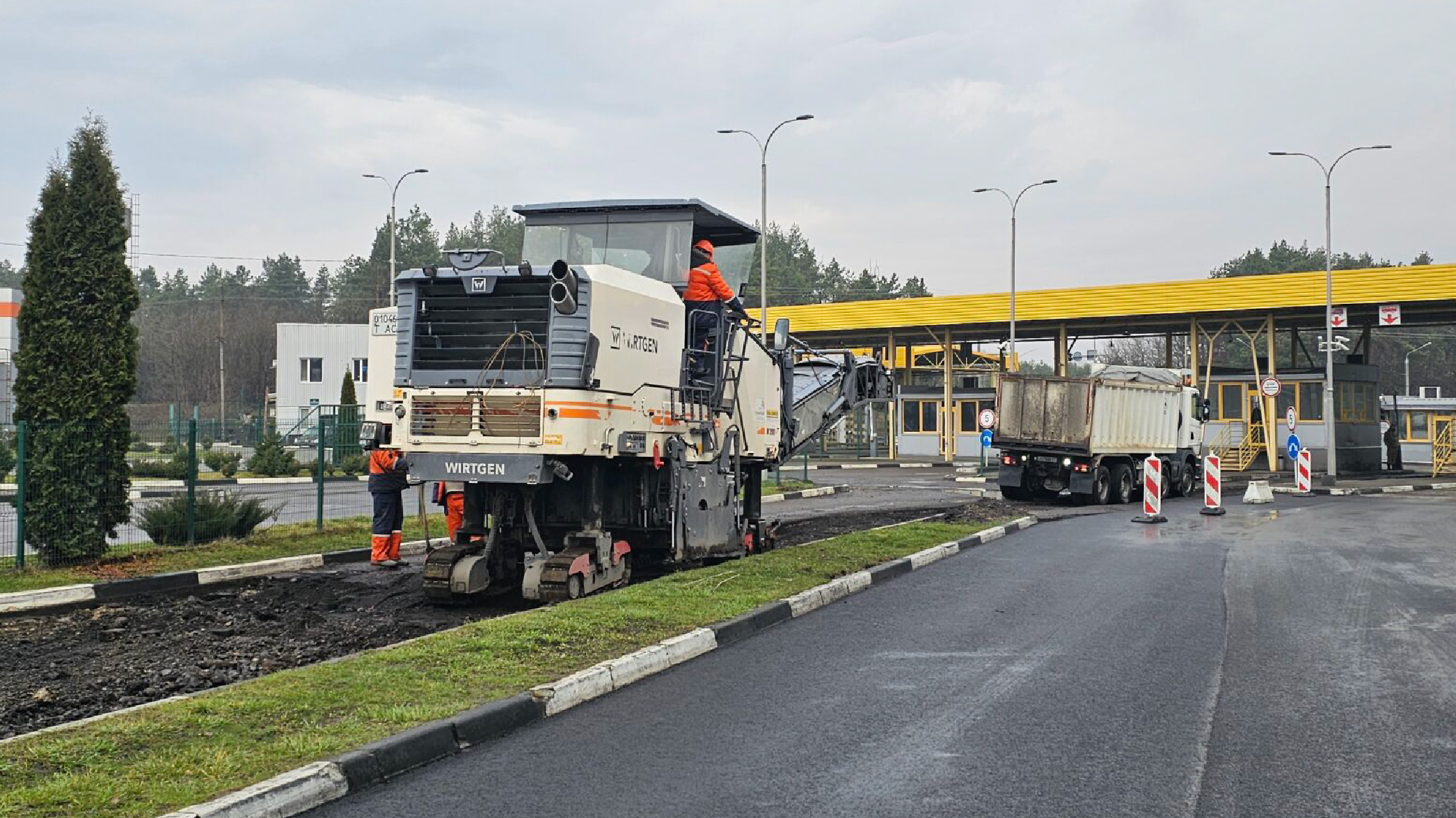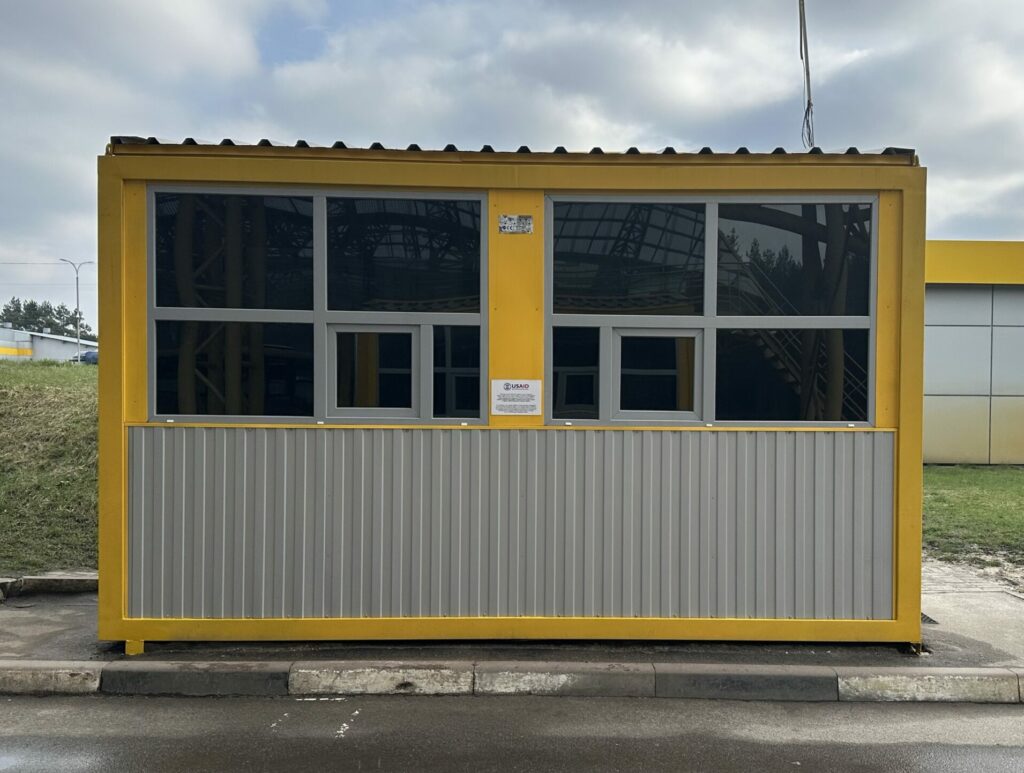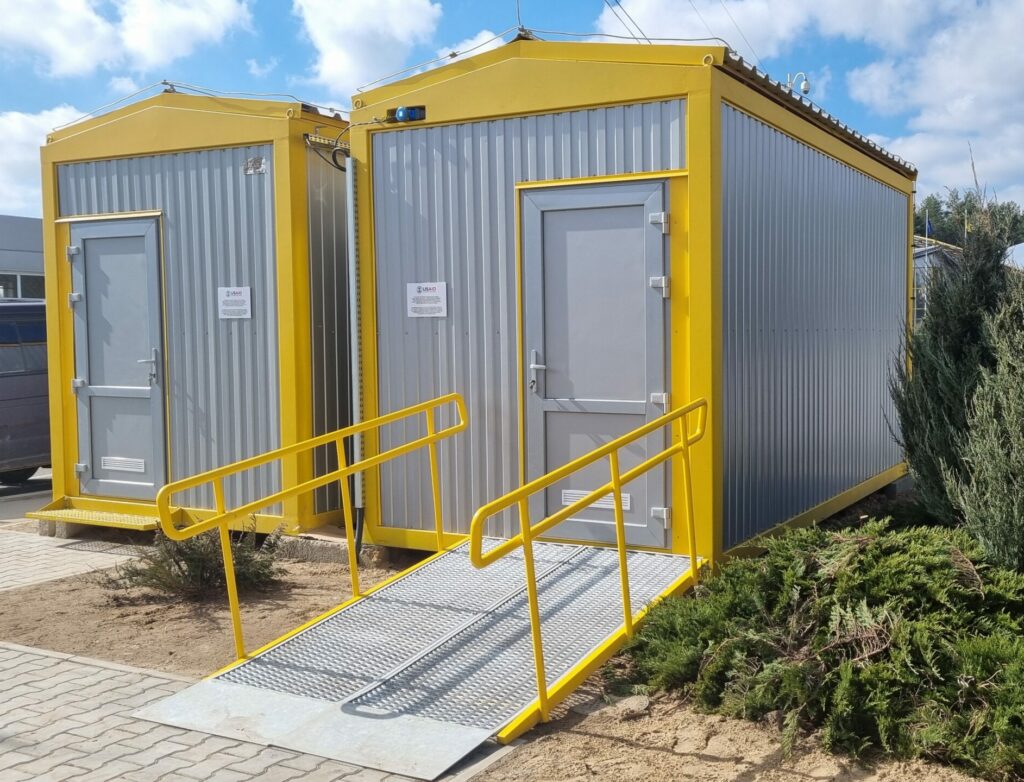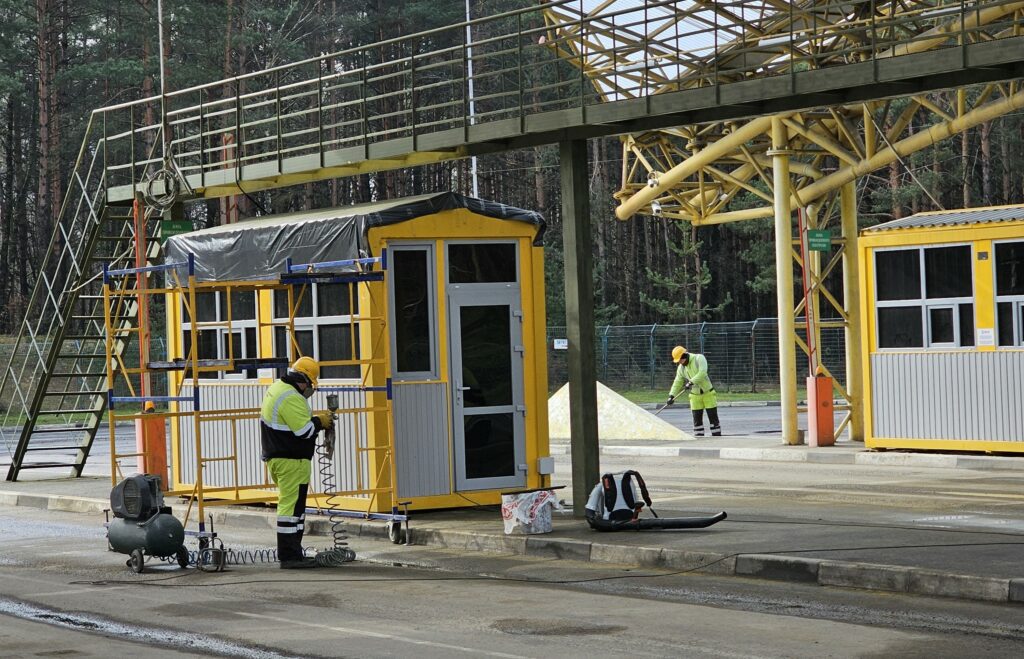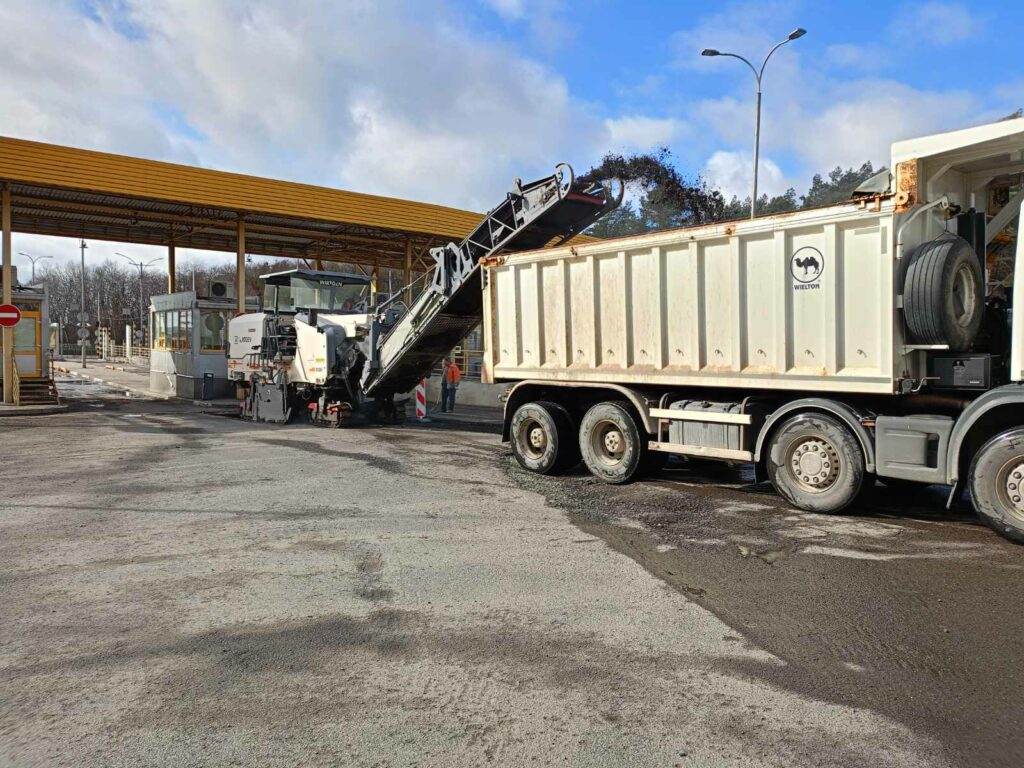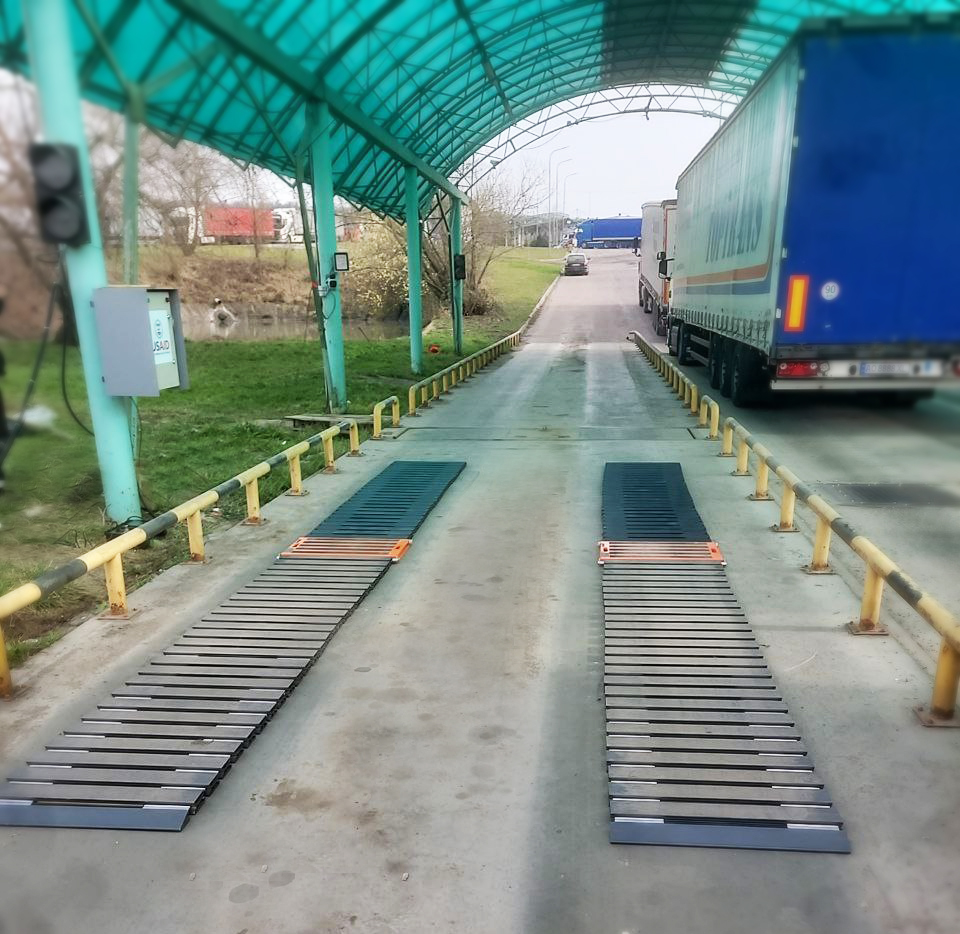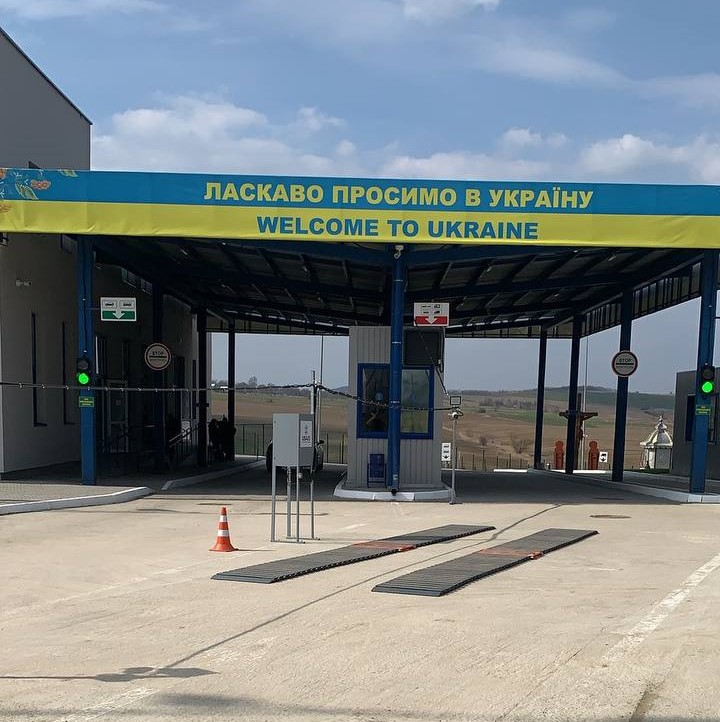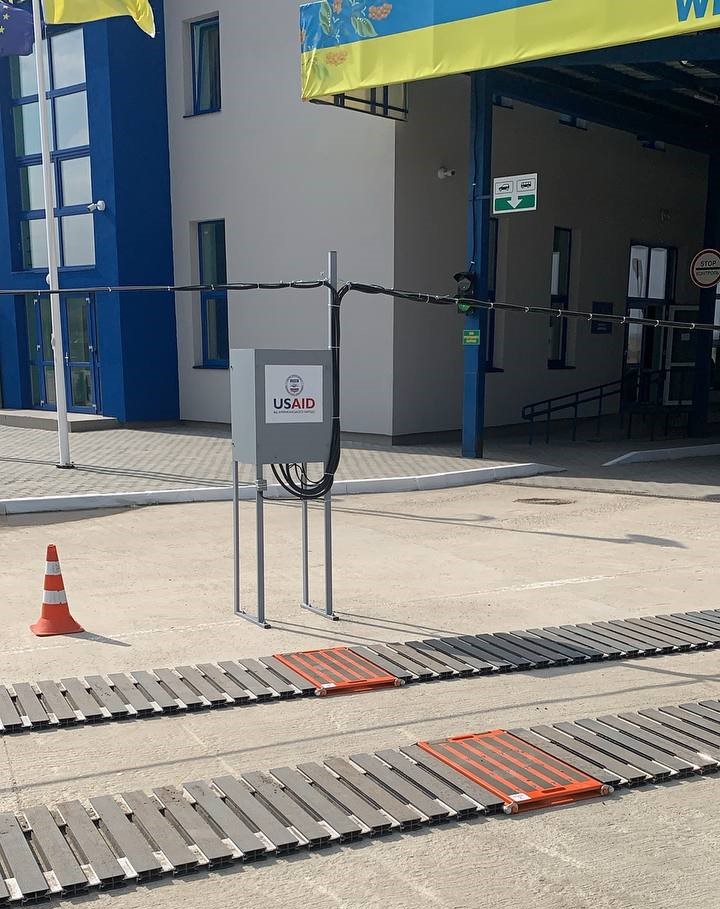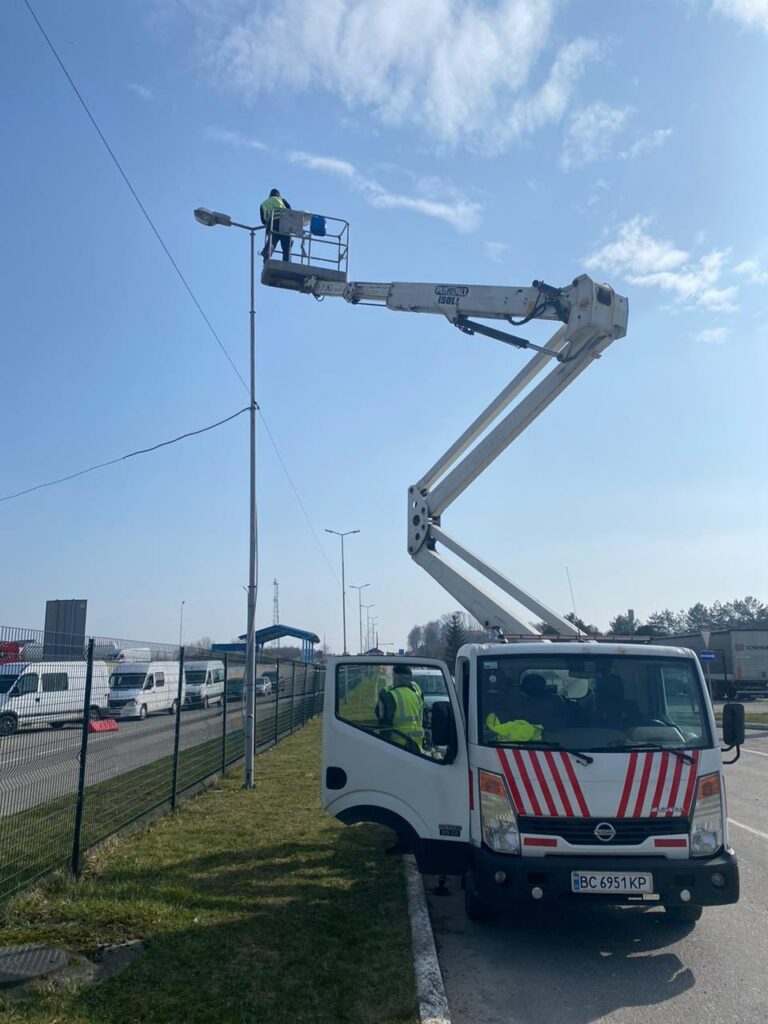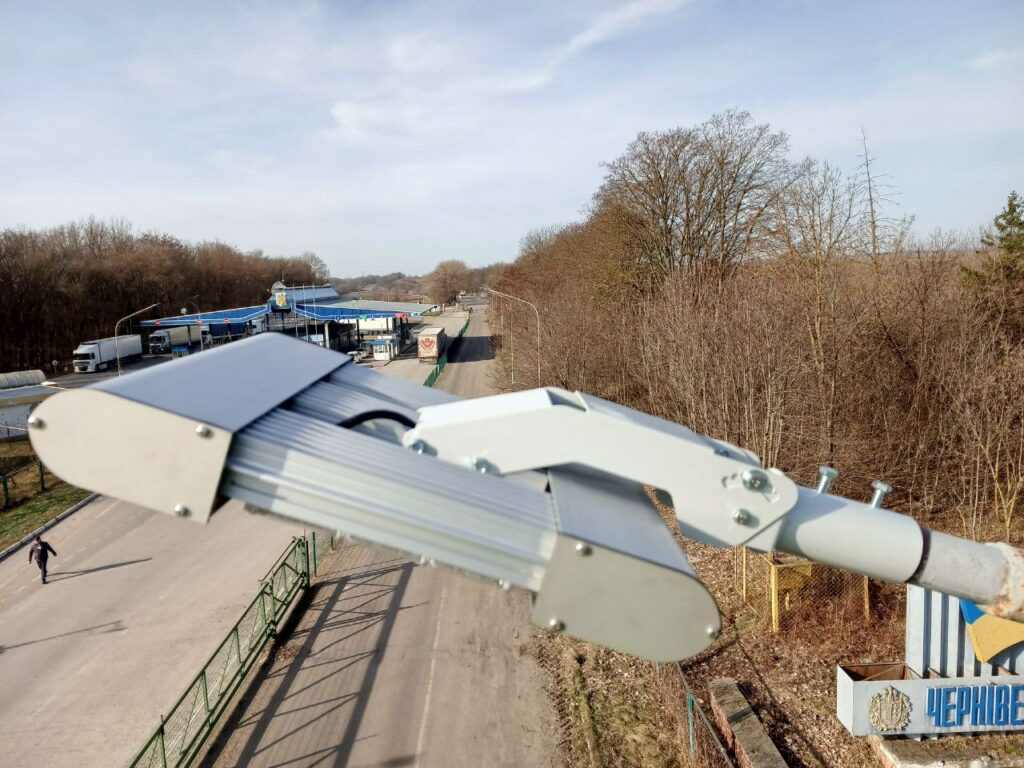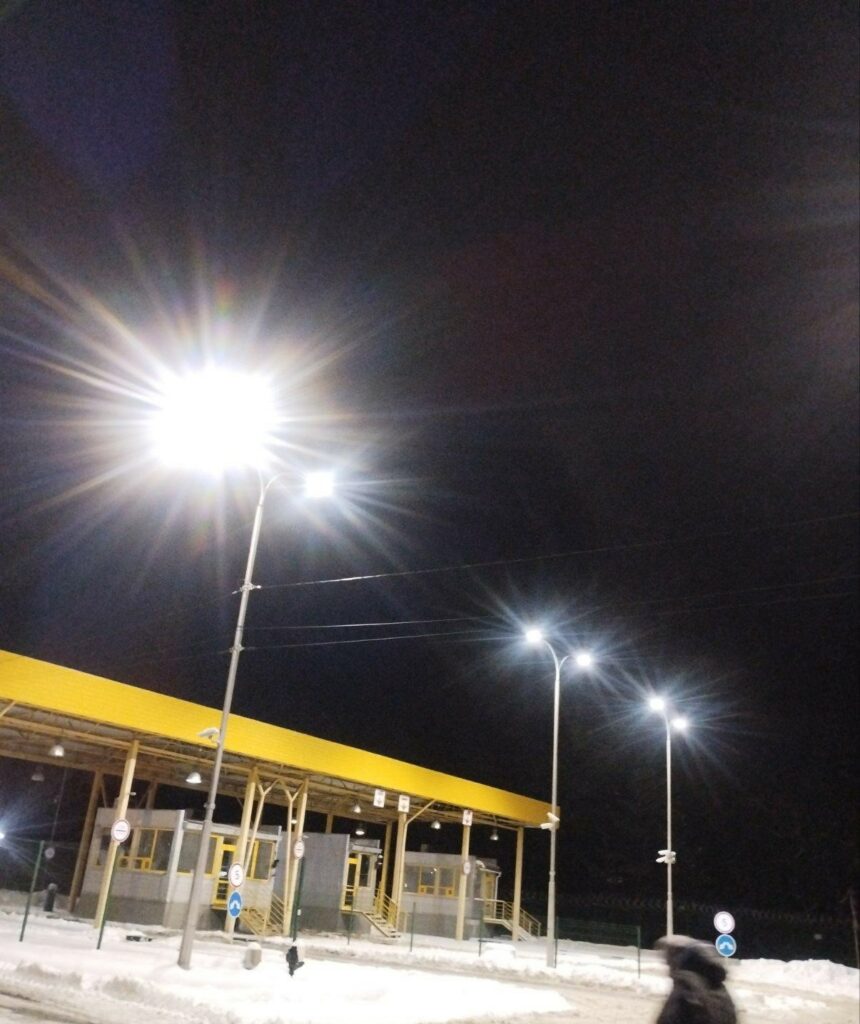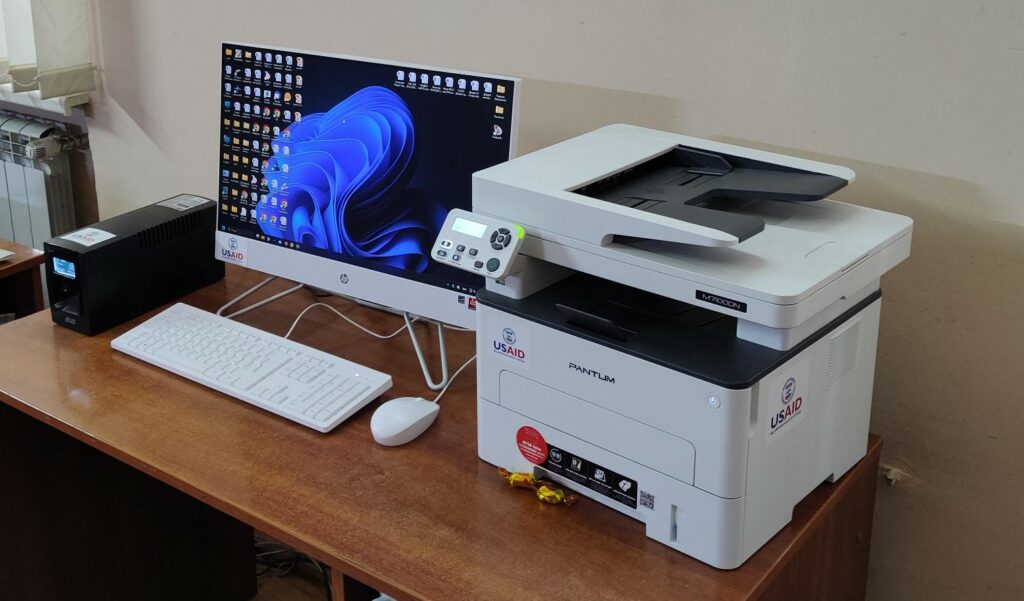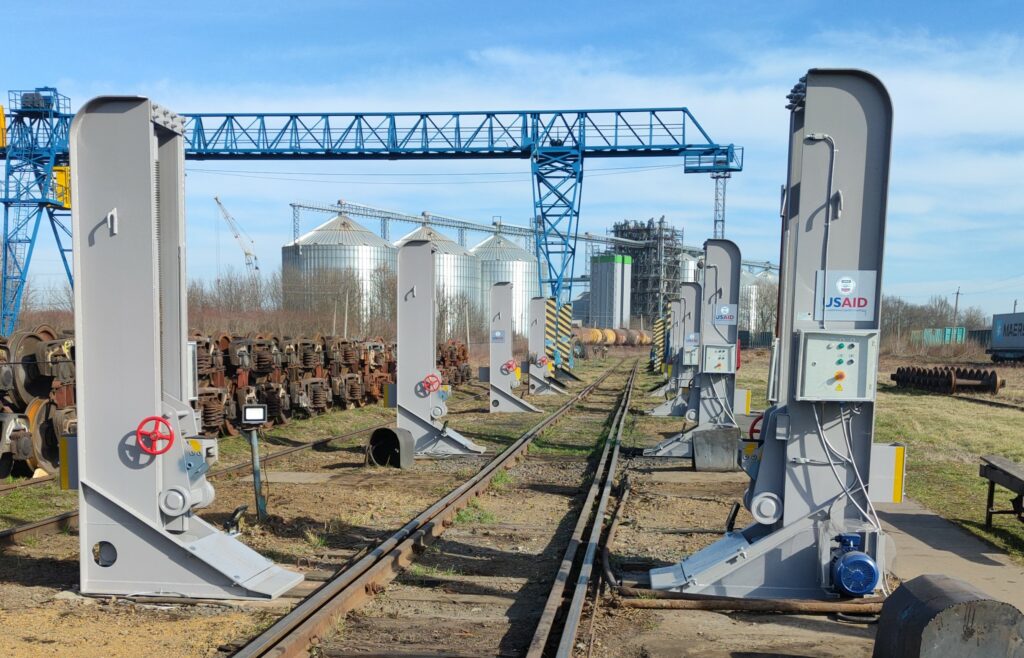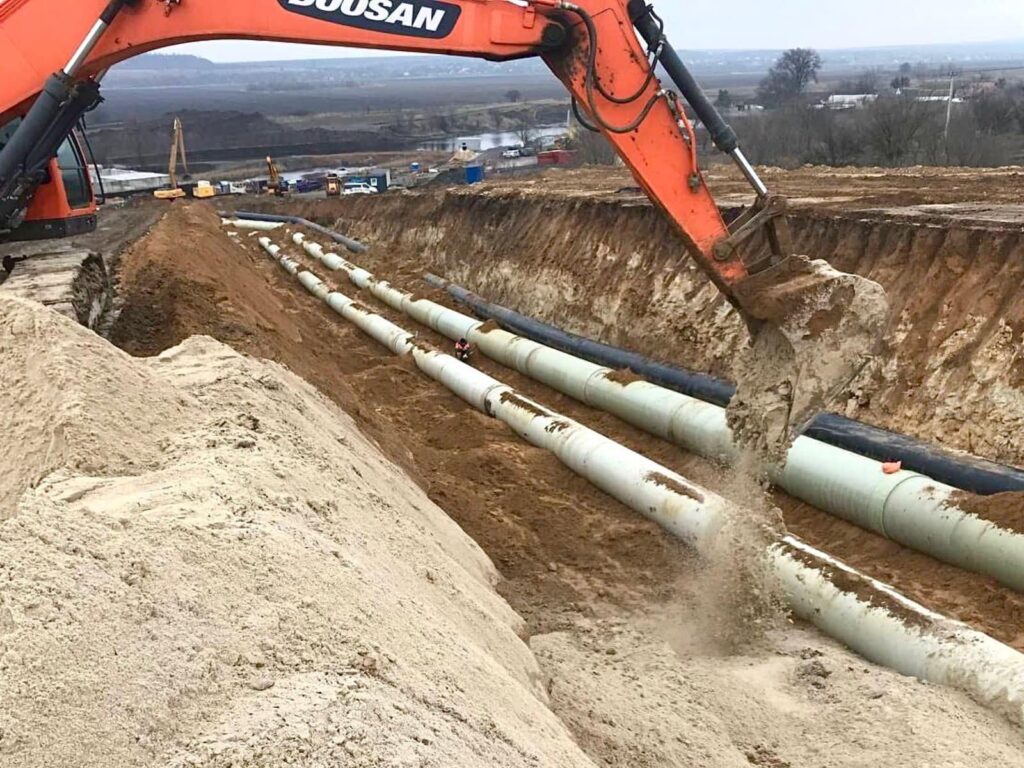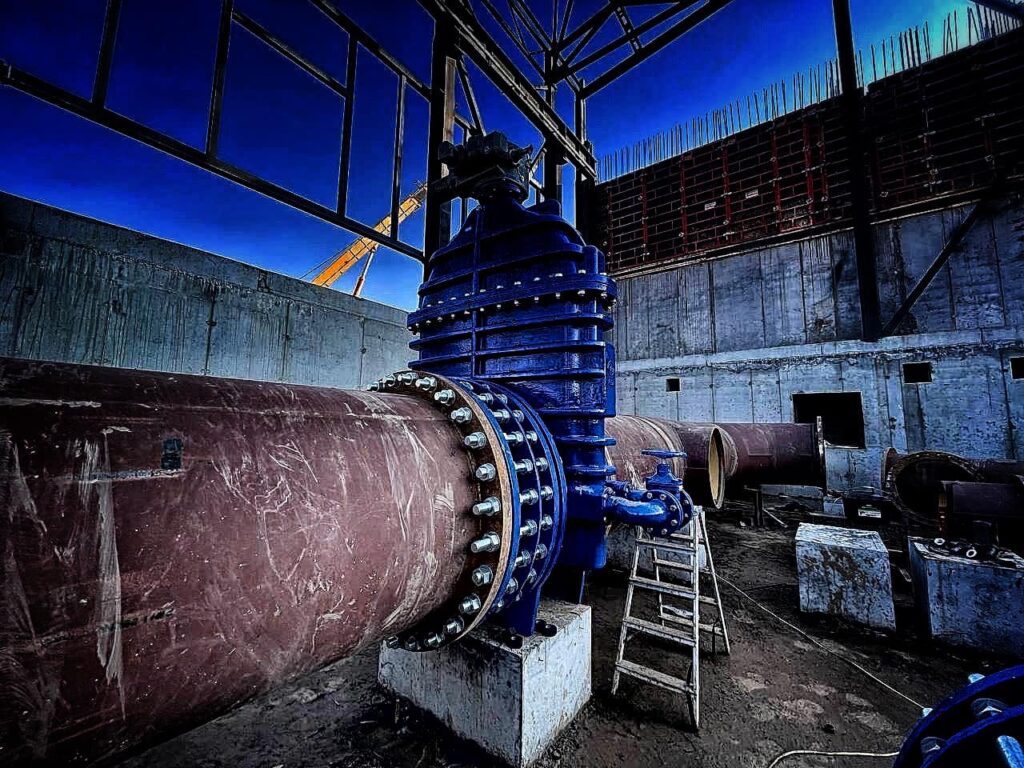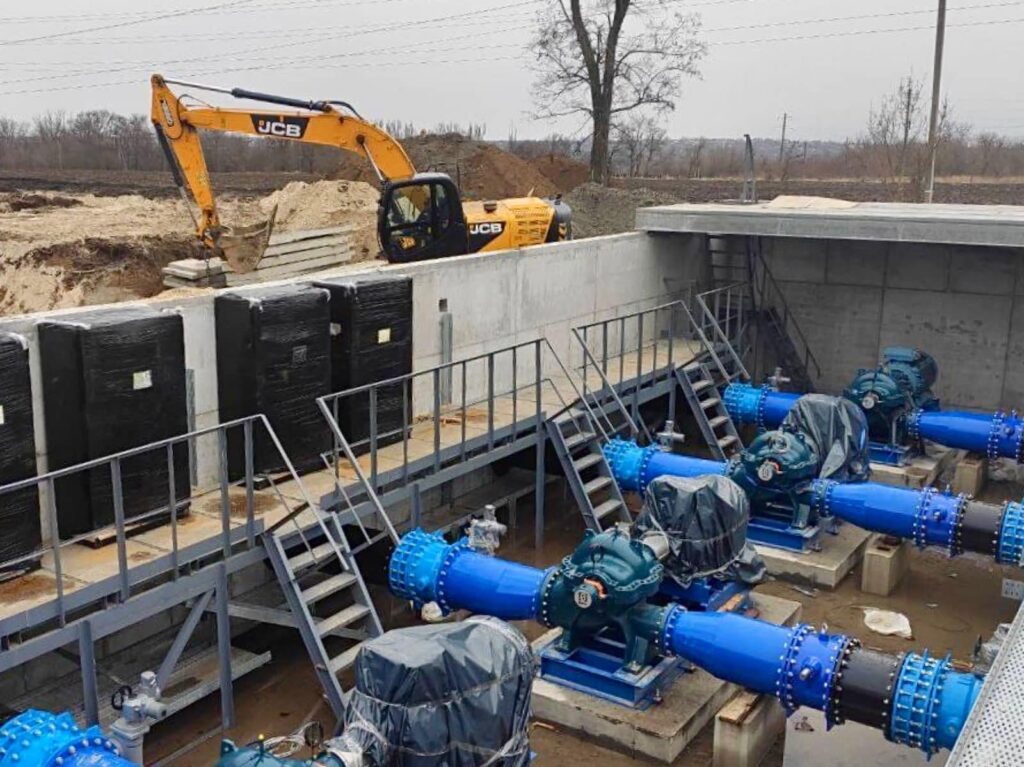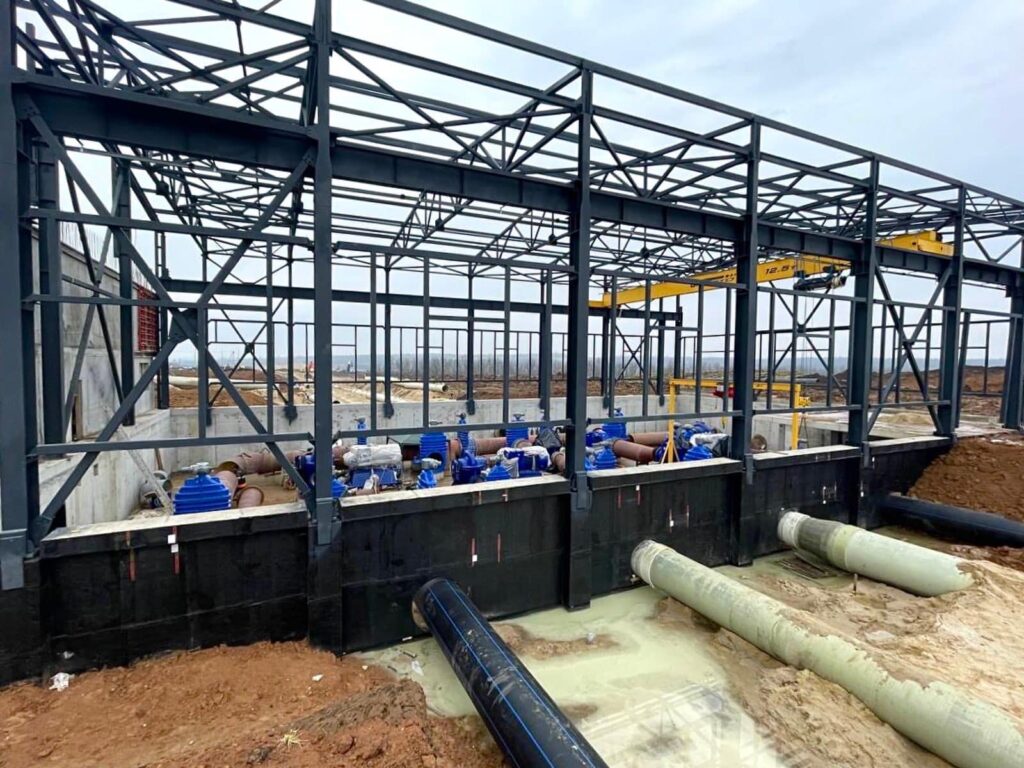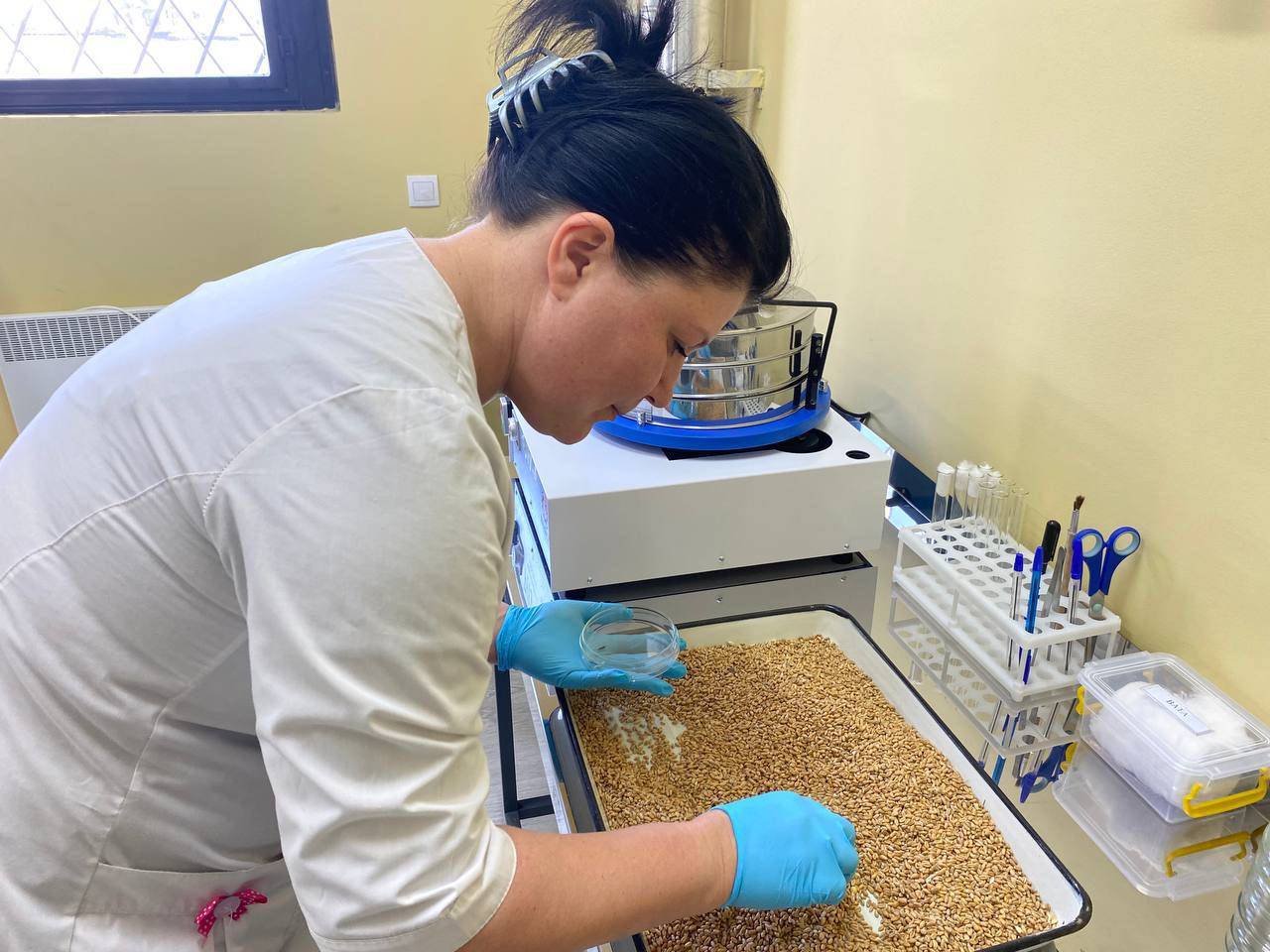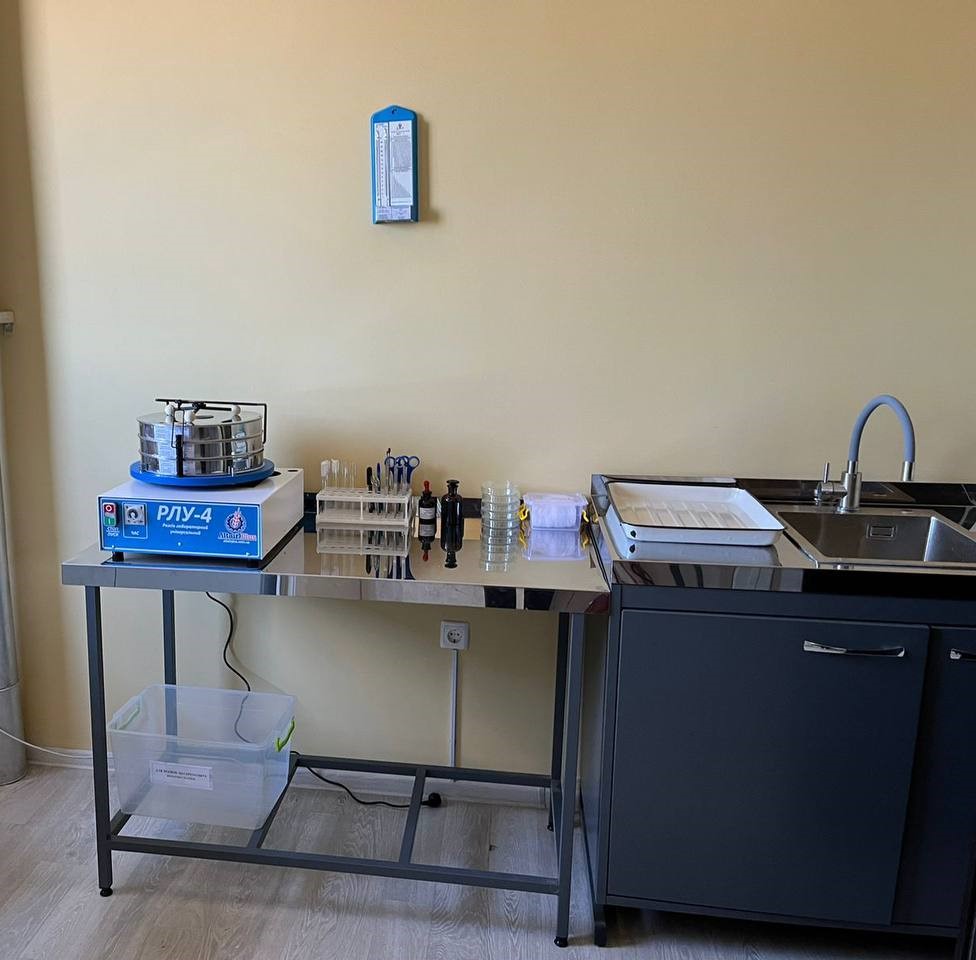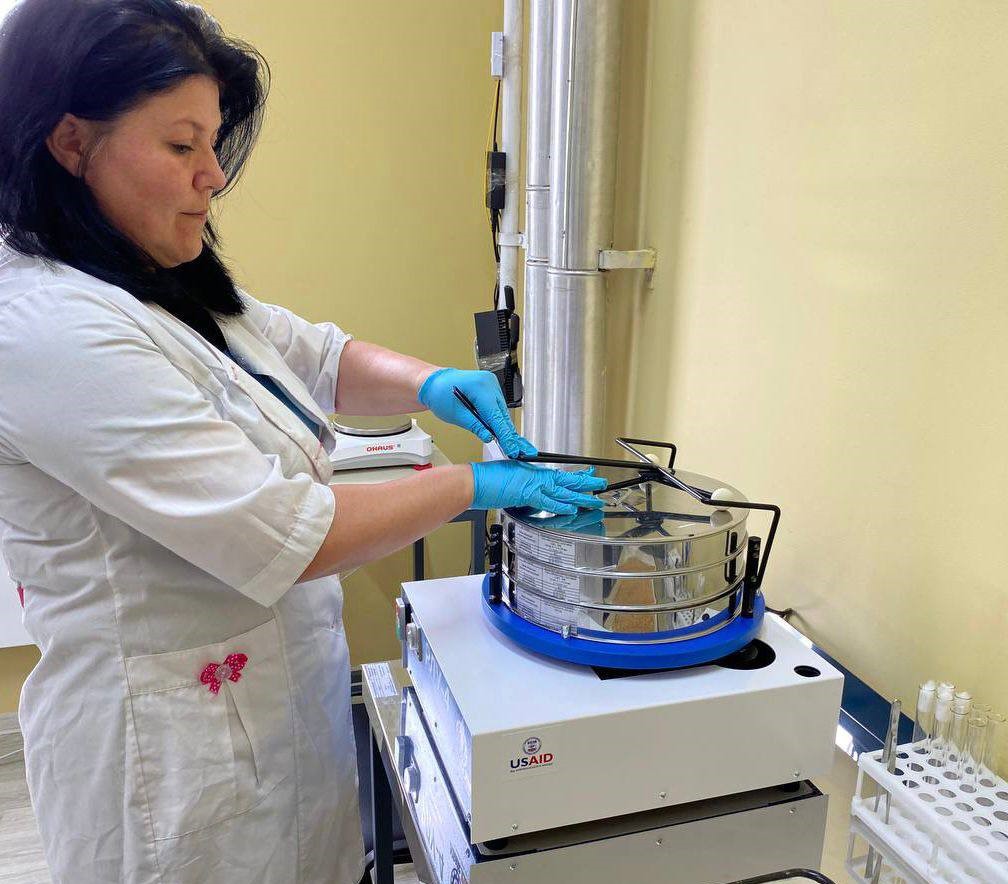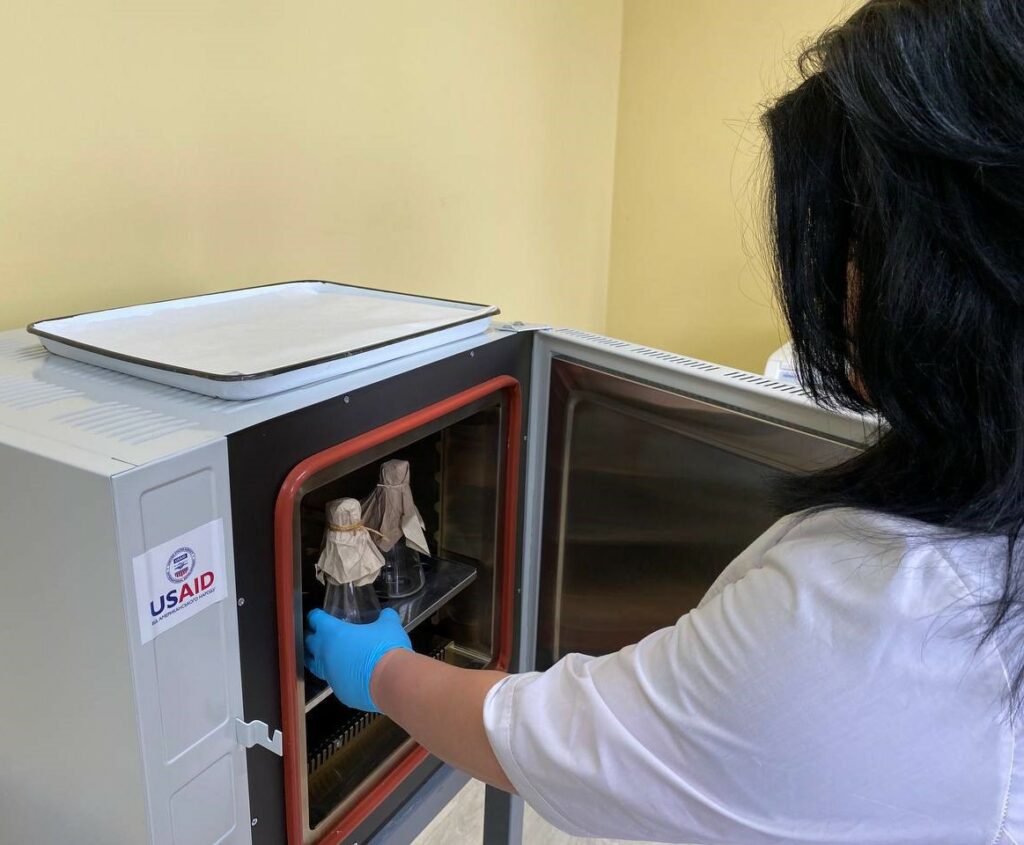On April 19, representatives of the USAID’s Economic Resilience Activity (ERA) – Timothy Madigan, Chief of Party, and Cameron Berkuti, Border Crossing Points Director – participated in an intergovernmental presentation of the master plan for the Ukrainian-Romanian strategy for border infrastructure.
The presentation was attended by Serhiy Derkach, First Deputy Minister for Communities, Territories, and Infrastructure Development of Ukraine, and Mustafa Nayyem, Head of the Agency for Restoration, and partners from Romania, including Dorel Fronia, strategic advisor on customs policy at the EU Advisory Mission Ukraine, and Irinel Ionel Scriosteanu, State Secretary of the Ministry of Transport and Infrastructure of Romania. Representatives of both countries’ State Customs and Border Guard services were also there.
While the master plan covers 14 border crossing points (BCPs), six of them are located in Bukovyna, a transitional land between Ukraine and Romania, which is of strategic importance. The plan involves the construction of new BCPs, as well as the modernization of existing BCPs on the Ukrainian – Romanian border. The Romanian side also plans to build rail connections to the Ukrainian – Romanian border to further boost cargo export and import operations between Ukraine and the European Union (EU).
Overall, the master plan aims to increase trade turnover and passenger traffic between Ukraine and the EU. In Bukovyna, the plan identifies Porubne-Siret and Bila Krynytsia-Klimeuts BCPs as high priority, Dyakivtsi-Rakovets and Krasnoilsk-Vicovu de Sousse BCPs as medium priority, and Shepit-Izvorele Sucevei and Ruska-Ulma BCPs as lower priority. USAID ERA is already working on three of these, which are Porubne, Diakivtsi, and Krasnoilsk.
“The USAID Economic Resilience Activity is working with the Ministry for Communities, Territories, and Infrastructure Development, and the Agency for Restoration, to improve services and working conditions at Ukraine’s western border crossing points, including with Romania. We are targeting 42 crossing points to deliver different levels of support, ranging from short term to long term, to increase their capacity. It is vital that we synergize our efforts with the various stakeholders to ensure that we deliver results efficiently, which is why participation in this presentation is so important. The next step is to continue to look for opportunities for close cooperation with all stakeholders present here today and beyond,” said Timothy Madigan, ERA Chief of Party.
“Modernization of the border crossing points is an important task for us, as it will speed up the movement of goods and make it more comfortable for drivers and passengers. We are grateful to USAID and the American people for their continued and comprehensive support of Ukraine and the Agency for Restoration in particular,” said Mustafa Nayyem, Head of the State Agency for Restoration and Infrastructure Development of Ukraine.
Background: USAID’s Economic Resilience Activity (ERA) is one of USAID’s core partners implementing the $350 million Agriculture Resilience Initiative – Ukraine (AGRI-Ukraine) that was established in 2022 to bolster Ukrainian agricultural exports and alleviate the global food security crisis exacerbated by the war. Under AGRI-Ukraine, ERA partners with public and private companies to complement and leverage urgently needed grain transportation and transshipment investments.
ERA also directly supports the Government of Ukraine, including the Ministry for Restoration (MoR), the State Agency for Restoration and Development of Infrastructure of Ukraine (SARDI), the State Customs Service, and Ukrainian Railways, to upgrade 42 of Ukraine’s border crossing points (BCPs). Modern and more efficient border infrastructure and customs procedures will reduce export costs and increase export capacity, enabling Ukraine to scale trade and advance its path to EU integration.





